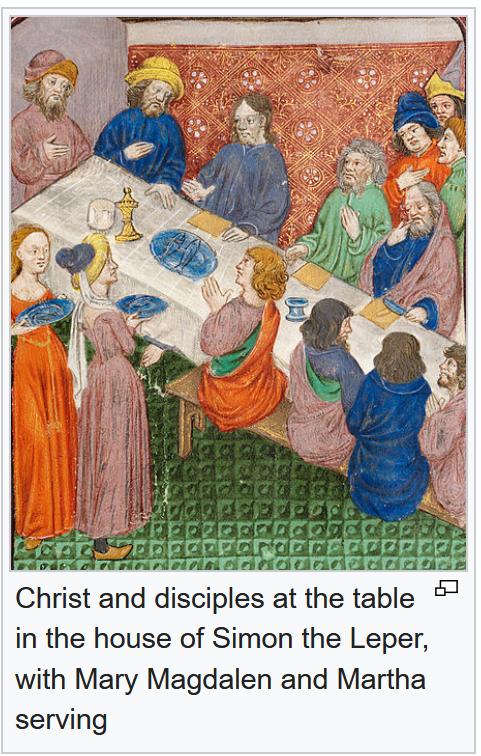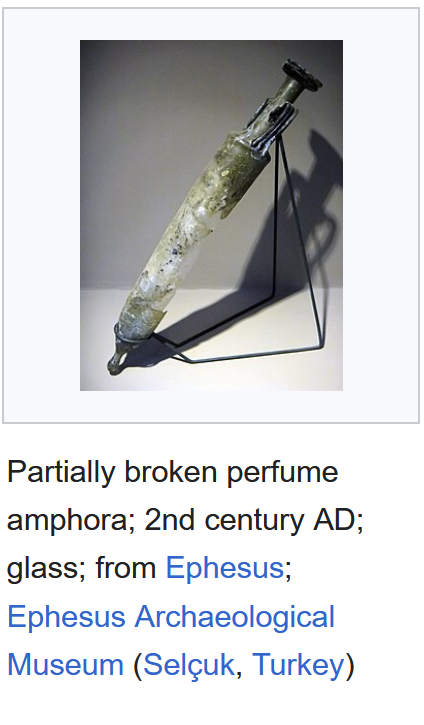This week I’ve fallen ill with Corona, but I have to say I’m so thankful to God that I’m still here. So many people have died and suffered. Since it started that we should count our blessings, that we’re still here in that sense.
It’s an interesting thing that happens to you when you get Corona. The fact is that you are put into isolation, but it also hurts your family as much as it hurts you it’s not a very nice feeling. The truth is that wherever your family is they are also in isolation from you even if they have freedom to walk anywhere, they like because of the bond of love.
Usually, I live in the countryside and the forest, but my son is going to go and study in Helsinki, so we had to find a place for him to live. So, we went down to Helsinki, and we found a place for him, and he’s going to start his course very soon in animation and then OK, when I came back on the train, I didn’t think anything about it. We were going to go for a second trip down to Helsinki to give a soft landing and lo and behold that particular morning after a corona test, I had caught corona. I believe I caught it whilst we were on the train or in Helsinki (From the first visit)
I’m thankful to God for these little blessings such as the injections I had previously because it means that it hasn’t hit me as hard as some people have been hit. The only symptoms I really had was a headache and blowing my nose. I haven’t really felt weak or ill or coughing myself to death just had a couple of nights so there was not so much sleep.
Why am I saying this?
Well, the truth is bad things happen to people who have faith and bad things happen to people who don’t have faith it can happen to anyone and everyone no one person is an island. At this juncture, I want to remember that all those things come from our Creator, God.
At this point, most religions agree that there is a Creator who gives good gifts too. Within the Trinitarian definition Father, Son and Holy Spirit God the father cannot be seen. The only way that we know anything about the Father is by the two hands of God, as Irenaeus would say, through the Son and the Holy Spirit.
Indeed, Jesus points beyond himself in the Lord’s Prayer when he starts with our Father, or in John 17 when Jesus talks to the father in the Great High Priestly prayer, John 17.
So, then what is prayer?
I want to start with a general definition. I will keep it very simple that even a child could understand it.
My definition is:
When you have a conversation with a with a person there are certain things that you have to take for granted that the person, you’re talking to is a human being, although nowadays I’m sure that there are people that talk to robots. When you talk to a human being, another person, let’s say it’s your mother or your daughter, or your son, or your brother, or your sister.
There’s an assent that that person is important enough to talk to. There’s a family bond of affection. Even with a complete stranger there is a mutual respect. These basic things that we actually learned in the family before we went into the big wide world. I will use myself as an example, When I was a child, I remember that I spent a lot of time with my mother and my brothers in Cyprus and we had a great time. I remember once when we were still living in a mobile home, we were having some food outside probably over a fire or something and it was nice family time. For fun I wanted to see how far I could throw my voice and I threw my voice. My dad laughed about it. Made jokes about it and stuff it was a great time.
I was protected I didn’t really know what was going on around me. In actuality, there were Greek kids in that village as well, but I never actually met a Greek kid in the village, which is really sad. The political atmosphere for dialogue between the two communities was poisoned at that time. I remember going to preschool for a year and I was just learning some basics I was really enjoying this day school thing. It was great fun and then the year after I started to go to a proper school and I started to mix with other students and I remember even though I was about 7 years old that basically I got on with some people and I didn’t get on with other people, just like family members.
But now there is an extension it’s moved from just the family to in a sense a reflection of the community and then later on obviously I eventually left Cyprus because of the war and the troubles, and I grew up in England, I failed school because of parental marriage breakdowns and stuff which affected me.
Eventually I went back to college and got to university, and I did everything I should have done a bit earlier on in life but throughout that whole time, I wonder how many conversations I had with people, how many friends I made, how many people didn’t like me a lot and that’s something about us.
We need to communicate with others; Who is the most important Person in the whole of the universe that we should communicate with its God. God is the one who created us.
I think about my parents realized that they have lots of faults, I have lots of faults, there’s no one who is perfect. Only God is perfect. So, what better place and what safer place can there be but in God’s arms?
Who loves your soul?
Obviously, I take a Trinitarian view, but in in general any human being can call upon God no matter what religious background or no religious background at all. Anyone can call on God 24/7 is open doors. The Lord’s Prayer also as well, although it’s in Matthew’s gospel. ‘The Our Father prayer’ was nothing new by the time of Jesus, we found Jewish manuscripts within other Jewish traditions but basically explains The Lord’s prayer, nearly verbatim so all the different components that have, have always been there.
Our Lord decided upon these particular components found in the Lord’s prayer. So that’s what we’re going to be looking at, we need to remember that conversing with the Ultimate Creator is a privilege.
When we come to the Lord’s Prayer in Christ, and we’ve got rid of some of the baggage (wrong inner attitudes and intentions) before we even start praying. We are then ready to pray as Jesus is going to teach us how to pray.
As Christians, you have probably read the Lord’s Prayer thousands and thousands of times, or you have recited it on many occasions. What I’m asking you perhaps (and myself as well) we need to come back to the Lord’s prayer in humility and let’s see what we can learn together. Let’s see what we can reason together with the Lord’s prayer and spend time at the feet of our Master, the Lord Jesus Christ.
Our Lord says:
9 “Pray, then, in this way:
‘Our Father who is in heaven,
Hallowed be Your name.
10 ‘Your kingdom come.
Your will be done,
On earth as it is in heaven.
11 ‘Give us this day our daily bread.
12 ‘And forgive us our debts, as we also have forgiven our debtors.
13 ‘And do not lead us into temptation but deliver us from evil. [For Yours is the kingdom and the power and the glory forever. Amen.’]
14 For if you forgive others for their transgressions, your heavenly Father will also forgive you. 15 But if you do not forgive others, then your Father will not forgive your transgressions. Matthew 6:9-15
From NASB
Luke’s version:
2 He answered, When you pray, say,
Father, may your name be hallowed;
your kingdom come.
3 Give us each day our daily bread.
4 And forgive us our sins, for we too
forgive all who have done us wrong. And
do not put us to the test.
From; 1989 Revised English Version
(updated New English Bible)
The general feel of the prayer
First, the object of Prayer is God the Creator (Omnipotent, omniscient, omnipresent, invisible God)
Secondly, we notice that our Lord speaks in the first-person plural (such as; we our)
The term Father used in the various religions
Bot Judaism and Christianity have used the term, Father. Judaism uses the term metaphorically and perhaps in the Lord’s prayer it could be interpreted as metaphorical for it is for all intents and purposes a Jewish prayer. Jesus was a Jewish Rabbi while he on earth.
Islam
In Islam the use of Father is discouraged because they want to emphasize the complete separation from the Trinitarian view. A chasm forms that God cannot be touched:
“Unlike in Judaism, the term “father” is not formally applied to God by Muslims, and the Christian notion of the Trinity is rejected in Islam.[65][66] Even though traditional Islamic teaching does not formally prohibit using the term “Father” in reference to God, it does not propagate or encourage it. There are some narratives of the Islamic prophet Muhammad in which he compares the mercy of God toward his worshipers to that of a mother to her infant child.[67]
Islamic teaching rejects the Christian father-son relationship of God and Jesus, and states that Jesus is a prophet of God, not the Son of God.[65] Islamic theology strictly reiterates the Absolute Oneness of God, and totally separates him from other beings (whether humans, angel or any other holy figure), and rejects any form of dualism or Trinitarianism. Chapter 112 of the Quran states:
Say: He is God, the One and Only; God, the Eternal, Absolute; He begetteth not, nor is He begotten; And there is none like unto Him. (Sura 112:1–4, Yusuf Ali)” From (en.wikipedia.org/wiki/God_the_Father) As it says in this quotation Father is not a prohibited term although it has been discouraged. Concerning the Lords Prayer Taymaz Tabrizi writes:
” The prayer although widespread in Christianity, has historically been absent in Muslim rituals for the most part yet some Muslim traditions purport that it was recommended and perhaps even recited by the Prophet Muhammad albeit in an altered version that would befit Qur’anic theology.”
He then quotes an old version equivalent to the Lords Prayer. If you look at it very carefully one can see parallel to the Matthean version:
“Abī al-Dardā said: I heard the messenger of God (s) saying: if any of you or his brother is suffering from anything, then he should say:
O Lord God who is in heaven,
Hallowed be your name,
Your decree is in heaven and the earth,
As your mercy is in heaven,
Forgive us our sins and trespasses,
You are the Lord of the good folk,
Send down a mercy from your mercy,
And a healing from your healing upon this pain so that it may be healed”
From (bliis.org/essay/lords-prayer-islam/#ftn3) Taken from The Lord’s Prayer in Islam
By: Taymaz Tabrizi; January 13, 2018
In some of the Eastern religions the term Father is not a problem
Sikhism
The Guru Granth consistently refers to the creator as “He” and “Father”. This is because the Granth is written in north Indian Indo-Aryan languages (mixture of Punjabi and dialects of Hindi) which have no neutral gender. Since the Granth says that the God is indescribable, God has no gender according to Sikhism.[73]
God in the Sikh scriptures has been referred to by several names, picked from Indian and Semitic traditions. He is called in terms of human relations as father, mother, brother, relation, friend, lover, beloved, husband. Other names, expressive of his supremacy, are thakur, prabhu, svami, sah, patsah, sahib, sain (Lord, Master).[73]
Hinduism
In Hinduism, Bhagavan Krishna in the Bhagavad Gita, chapter 9, verse 17, stated: “I am the Father of this world, the Mother, the Dispenser and the Grandfather”, one commentator adding: “God being the source of the universe and the beings in it, He is held as the Father, the Mother and the Grandfather”.[62] A genderless Brahman is also considered the creator and Life-giver, and the Shakta goddess is viewed as the divine mother and life-bearer.
These quotations have been taken from the Wikipeadia: (en.wikipedia.org/wiki/God_the_Father)
So then whatever tradition one is from here in Matthew’s text God is called Father but in Islam he has been interpreted as Creator. We are talking about the same God who made the whole human race.
Commentary
- ‘Father, hallowed be Your name. Luke 11:2
- ‘Our Father who is in heaven, Hallowed be Your name. Matthew 6:9
Here are the two opening versions. Jesus Talks to his disciples and begins by showing them where all good things come from. Matthew’s version puts the emphasis on the Father ‘we’ all the disciples share. Forget about interpretations of ‘daddy’ the word ‘hallowed’ (holy) dismisses that. Judith Lieu warns us of this danger as well in her Luke commentary, page 89. Christianity can learn both from Judaism (Father as Metaphorical) and Islam (God is Creator a warning for Christians not to abuse the term Father). We can only come to the Father through the Son. If we try to come to God on our own merit, we will be burned up in judgement. We should always keep the respect (The fear of the Lord in front of us)
As we read above boundaries are set. Hallowed is a form of the word holy. Holy is about separating the religious from the non-religious. The utensils found in a temple, church, cathedral or other institution is always to be used for that particular purpose. One does not take the communion cup and drink beer from it in the local pub. This is sacrilegious and an abomination. No, my friends in the same way God is Holy and separate from his creation though creation relies on Him for its very existence.
We are also to keep God’s name Holy. I can understand why in Judaism Ha Shem is used ‘the name’. As Christians we feel completely liberated because of what the Son has done for us. We are liberated but does that mean that we should use the Tetragrammaton (YHWH) which is a very holy name in Judaism. I’m thinking about the ethical issues around these things. Because The Church and the Synagogue separated a long time ago, we seem to forget that Paul for example did not stop seeing himself as Jewish. We ought to respect the background of the Apostles as much as the written word they gave to us. If we really want to foster Christian love in the world; Are we practicing in such a way that helps to build bridges.
- ‘Your kingdom come. Your will be done, On earth as it is in heaven. Matthew 6:10
- Your kingdom come. Luke 11:2
We have spoken about the fulfillments of the eschaton (end of the age) a lot. It is at the heart of the Lord’s prayer. An alignment of God’s will, will take place in the whole of Creation from the heavens to the deepest recesses of the earth. We are supposed to pray and live this. Luke has the shortest and most direct version. Luke takes it for granted that God speaks from heaven to every situation and perhaps his Greek readers appreciate more directness in his Gospel.
- ‘Give us this day our daily bread. Matthew 6:11
- ‘Give us each day our daily bread. Luke 11:3
Moses new that obeying God was more important than eating bread and sustenance. Jesus here has purposefully put God’s will before food. Bread was seriously important, and this idea possibly comes from the ‘Manna’ in the wilderness. The people needed to be fed day by day but doing the will of God was not at the forefront of their minds. We too need to learn from the Lord’s prayer to seek his kingdom first and then our needs indeed will be met.
- ‘And forgive us our debts, as we also have forgiven our debtors. ‘And do not lead us into temptation, but deliver us from evil. [For Yours is the kingdom and the power and the glory forever. Amen.’] 14 For if you forgive others for their transgressions, your heavenly Father will also forgive you. 15 But if you do not forgive others, then your Father will not forgive your transgressions. Matthew 6:12-15
- ‘And forgive us our sins, For we ourselves also forgive everyone who is indebted to us. And lead us not into temptation.’” Luke 11:4
We have come full circle on the Lord’s Prayer. As I said earlier God’s name is sacred. Here in these closing verses of the prayer we see the Father as Judge. The Father will judge according to the measure that we can forgive. Did not Jesus himself forgive his persecutors from the cross?
Sin or debt?
Luke uses the word sin (hamartia) missing the mark. This is a more natural words to use for Luke’s Greek readers; (en.wikipedia.org/wiki/Hamartia).
Matthew uses debt (opheiletēs) this is about meeting obligations.
I think both can be used but ‘debt’ for me has a more personal usage. You owe a debt to a person whereas if you sin it relates more to you and is impersonal. In both meanings a wrong has taken place and there needs to be forgiveness. Our Lord expects us to forgive our fellow brothers and sisters.
Transgression or Temptations
I think in Luke’s version ‘temptation’ is not the best word to use. We do not test God but God can test us.
Dictionary definitions
g3986. πειρασμός peirasmos; from 3985; a putting to proof (by experiment (of good), experience (of evil), solicitation, discipline or provocation); by implication, adversity: — temptation, x try.
AV (21) — temptation 19, temptations 1, try 1;
1. an experiment, attempt, trial, proving
A trial, proving: the trial made of you by my bodily condition,
since condition sewed as to test the love of the Galatians
toward Paul (Cal. 4:14)
B. the trial of man’s fidelity, integrity, virtue, constancy
1. an enticement to sin, temptation, whether arising from
the desires or from the outward circumstances
2. an internal temptation to sin
a. of the temptation by which the devil sought to divert
Jesus the Messiah from his divine errand
3. of the condition of things, or a mental state, by which
we are enticed to sin, or to a lapse from the faith and holiness
4. adversity, affliction, trouble: sent by God and sewing to
test or prove one’s character, faith, holiness
(. temptation (i.e. trial) of God by men
1. rebellion against God, by which his power and justice
are, as it were, put to the proof and challenged to show themselves
(This has been taken from the Olive Tree enhanced Strongs dictionary)
Reflection
I think as we have looked at the Lord’s Prayer, we need to be mindful of who’s company we are in. Our Lord Jesus has been carefully teaching us about our own limitations in our attitudes and intentions. This prayer also teaches us about morality that we are not only individuals, but we are part of God’s Holy Society. We are called by God to love one another and to look out for the needs of one another. The question do we do this? The truth is a lot of the time we only look out for our own individual needs. God has very high standards and we cannot meet them. Only by grace can we come before the throne of God and we can only stand by what Christ has done for us not what we have done for him.
However, the Sunday School acronym ACTS fits all the pieces together for us
- A = Adoration
- C= Confession
- T= Thanksgiving
- S= Supplication (asking)
“The grace of the Lord Jesus Christ, and the love of God, and the fellowship of the Holy Spirit, be with you all.” 2 Corinthians 13 14 NASB













